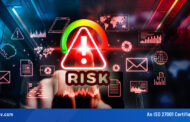A business without security measures is at high risk. The consequences of a cyber attack on your business can be devastating financially and legally.
Having your personal data leaked through a cyberattack can have lasting detrimental effects on the reputation of your network security. Protective gear and training systems can mitigate the impact of attacks on productivity, but you can also mitigate the impact of attacks by implementing protective gear and training systems for your employees. Employees should be educated about the potential consequences of cyberattacks and prepared to avoid potential attacks.
An important part of network security is making sure that your computer network and the information stored on it are secured from external unauthorized use. The security of a business’ network needs to be prioritized, as well as the useability and reliability of it.
A business network consists of a number of interconnected devices, including computers, servers, and wireless networks. There are many areas on these devices where external attacks can be launched. This is understood by attackers, who try to exploit those areas in order to achieve their selfish goals. Enterprises are increasingly reliant on their data and networks to sustain their business operations, and thus security becomes more critical as networks become more complex.
Here are some things cybercriminals can do to your business network
There are many small business owners who believe hackers won’t bother them because their business is small or in a niche industry. According to a cybersecurity report, small businesses account for 43% of data breaches. Cybersecurity is a crucial concern for small businesses, which are at risk when they ignore it.
The following are a few implications of cybersecurity on your business:
1. Theft of stored data, such as credit card information.
2. Before restoring access, your most valuable information is encrypted in exchange for a large payment.
3. Using certain information, they may gain access to large companies’ computer systems.
When your company’s system is attacked, you may have to temporarily shut down your business while you work to restore operations. There are cases when a business that has been attacked may never regain its functionality. This may expose you to legal responsibilities and fines, and your customers may never trust you again.
Most Common Attack Types
Small businesses are most commonly targeted by cyber attacks such as:
Malware
Malware is a type of malicious software attack that is typically directed at a business network to steal information or disrupt operations. Computer systems, clients, servers, and networks can be damaged by malware attacks. In addition to computer viruses, ransomware can also be used in these kinds of attacks
Ransomware
A ransomware attack targets your system to prevent you from accessing critical business data on a regular basis. Cybercriminals often take advantage of this to exploit businesses.
There has been a dramatic increase in ransomware attacks in the United States compared to France, the United Kingdom, Canada, Colombia, Mexico, Belgium, and other leading countries in the world.
Phishing Attacks
Typically, phishing assaults are carried out through nefarious emails and websites. They try to deceive a target into taking action that would result in downloading sensitive viruses and other infections onto their device. By doing so, they could collect sensitive information or alter how a computer system works.
Here’s How You Can Protect Your Business From Cyber Attacks.
While big companies spend heavily to secure their businesses, small business owners do not necessarily have to pay as much. To provide them with optimal security, they can deploy some basic measures and security solutions. You can protect your business from external and internal threats by integrating these solutions and practices into your business system.
1.Educate All Your Employees
According to a report, 95% of data breaches are caused by human error. It is possible that internal players such as employees or executives or external players will commit these errors. It is equally important to take the necessary measures to identify and prevent potential attacks by equipping your employees with the necessary tools.
Additionally, when your company employs a Bring-Your-Own-Device (BYOD) policy, devise ways to protect employees’ devices. Even if your network is secure, your employees’ devices are not, so your network is still vulnerable.
2.Make Strong Password Usage and Multi-Factor Authentication Necessary
The theft or compromise of employee passwords has been reported on a large scale because of missing devices and other factors. Due to the growing use of remote systems in businesses, hackers are also finding easier ways to steal data by taking advantage of weak passwords.
1. The work password must be kept separate from the personal password of every employee.
2. Additionally, they should change their passwords every month or quarter in order to prevent compromises.
3. It is important that your passwords do not contain any personal information.
Using multi-factor authentication is another method of securing access to your network. Using multi-factor authentication protects your application by requiring a second source of validation before users can access it. The most common method of creating additional authentication is to use a mobile device or geographic location.
An employee needs to input a password and extra code generated by an app available only on their personal devices.
3. Restrict Access to Critical Data
You should limit access to your company’s financial information, spreadsheets, human resources files, account information, and customer information. The internal actors can take advantage of this opportunity to benefit personally from the information. The following are some reasons why they may consider attacking your system;
1. As a monetary incentive. It is possible for employees with financial motivation to devise ways to satisfy their needs.
2. The purpose of this is revenge. It is possible for your fired employees to launch a cyberattack to get revenge on you when you fire them.
3. The espionage problem. It is possible that spy workers are searching for opportunities to gain secret business information.
4. Encryption
You can use encryption tools to ensure that your data cannot be tracked or misused by unauthorized individuals. By converting data into difficult-to-decipher text, encryption converts the information into information that is only accessible by authorized users through encryption keys.
Keep the encryption key or password secure for all company resources, including tablets and smartphones. Make sure the encrypted document does not contain a key or password you would like to share with others.







